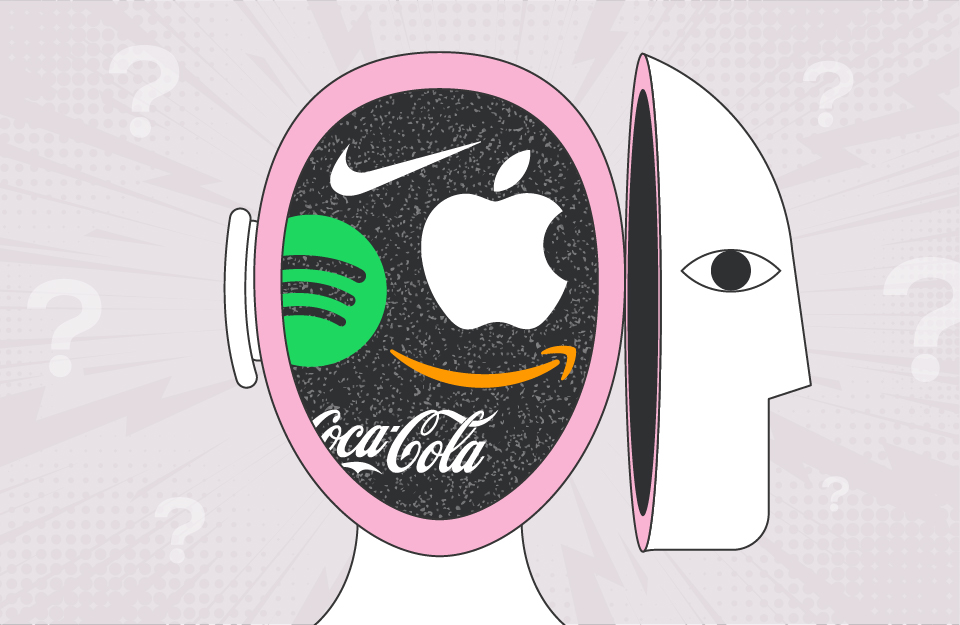The right brand is a game changer for startups.
A strong brand can be the difference between a company that thrives and one that fades into obscurity. As the business landscape evolves, innovative strategies like co-branding are also gaining popularity, offering startups unique opportunities to amplify their reach and build credibility faster than ever.
In this blog, we’ll explore the 16 key benefits of branding and co-branding, with a particular focus on how they can boost your startup branding efforts. Whether you’re just launching your startup or looking to elevate your business to new heights, these strategies will help you stand out in a crowded marketplace.
What Is Branding?
Branding is the process of creating a unique identity for your company that distinguishes it from competitors. It encompasses everything from your logo and visual identity to your company’s tone of voice, mission, and values. A strong brand connects emotionally with consumers and provides a consistent experience that builds trust and loyalty.
What Is Co-Branding?
Co-branding is a strategic partnership between two or more brands to create a mutually beneficial product or campaign. This strategy allows brands to combine their strengths and audiences, offering more value to consumers and expanding their reach.
Why Is Branding Essential for Startups?
For startups, branding is crucial because it helps build credibility, attract customers, and create lasting connections. In a competitive market, where many new businesses struggle to gain traction, branding can make a difference by establishing a strong, recognizable identity that resonates with your target audience.
Now, let’s dive into the 16 benefits of branding and co-branding and how they can impact your startup’s success.
1. Establishes a Clear Identity
Branding helps startups establish a clear identity from the get-go. Your logo, colour palette, and brand voice create a unique identity that distinguishes you from competitors and gives consumers a reason to choose your brand over others.
For example, Airbnb started as a small platform offering shared accommodations, but it’s clear, traveler-centric branding has transformed it into a global hospitality brand.
2. Builds Trust and Credibility
A professional and consistent brand gives your startup credibility. In 2024, consumers are more skeptical than ever, and a strong brand reassures them that your business is legitimate and trustworthy.
A cohesive startup branding strategy that delivers consistent messaging and visual cues across all platforms builds trust with your audience, encouraging them to engage and make purchases.
3. Creates Brand Recognition
One of the primary goals of branding is to make your startup easily recognizable. When people see your logo, packaging, or hear your tagline, they should instantly associate it with your company. The stronger your brand recognition, the more top-of-mind your business becomes when customers are ready to make a purchase.
4. Differentiates You from Competitors
In a crowded startup landscape, differentiation is key. A unique brand identity sets your business apart from the competition, highlighting what makes your products or services different and better. Through branding, you can emphasize your startup’s unique selling points (USPs) and carve out a niche in the market.
5. Fosters Customer Loyalty
A strong brand fosters customer loyalty by creating an emotional connection with your audience. When customers resonate with your brand’s values and mission, they are more likely to become repeat buyers and advocates for your business.
For instance, Tesla’s focus on innovation and sustainability has cultivated a highly loyal customer base that feels connected to the brand’s vision for the future.
6. Simplifies Marketing Efforts
Effective branding simplifies your marketing efforts. A well-defined brand provides a framework for your marketing campaigns, making it easier to craft consistent and compelling messages that align with your core identity.
With a strong brand, your marketing can focus on reinforcing key themes rather than constantly reintroducing your company to the market.
7. Enhances Perceived Value
Branding allows startups to charge premium prices by enhancing the perceived value of their products or services. A well-branded business often creates an aura of quality and exclusivity, allowing consumers to justify spending more.
Apple is a prime example – its branding creates a perception of high-end technology products, enabling the company to command higher prices.
8. Supports Business Growth
A strong brand doesn’t just help with immediate sales – it supports long-term business growth. As your brand gains recognition and trust, you’ll find it easier to expand into new markets, launch new products, and attract investors or partnerships. Branding establishes a solid foundation for scaling your startup.
9. Attracts Top Talent
Branding isn’t just about attracting customers; it also helps attract top talent. A well-established brand with a clear mission and values is more appealing to job seekers. Candidates want to work for companies that align with their own beliefs and offer a strong company culture.
10. Co-Branding Expands Your Audience
Co-branding partnerships allow startups to reach a broader audience by leveraging another brand’s customer base. By partnering with a complementary brand, you can gain exposure to new markets and enhance your startup’s credibility.
For example, Spotify and Hulu have successfully co-branded to offer joint subscription packages, expanding both brands’ reach among consumers who might not have otherwise engaged with their services.
11. Increases Marketing Efficiency
When two brands collaborate, they can share marketing resources, saving on costs while maximizing impact. Co-branding allows startups to access established marketing channels, content, and audiences, helping both brands achieve greater visibility with less effort.
12. Generates Buzz and Excitement
Co-branding campaigns often generate more buzz than solo efforts because they create something new and exciting for consumers. Collaborations between brands can produce limited-edition products, unique experiences, or exclusive offers that grab attention and drive engagement.
For instance, Nike’s collaboration with Off-White generated massive excitement by blending high fashion with athletic wear, creating a highly sought-after product line.
13. Builds Credibility Through Association
Startups often lack the reputation and history that established brands have. By partnering with a well-known and respected brand, a startup can instantly gain credibility through association. Co-branding signals to consumers that your business is worth trusting, simply because it’s aligned with a brand they already know and love.
14. Allows for Creative Innovation
Co-branding encourages creative innovation by blending the strengths of two different companies. Together, brands can introduce unique products, services, or experiences that neither company could have developed on its own. This innovation keeps both brands relevant and at the forefront of their industries.
15. Strengthens Your Competitive Position
Branding and co-branding both strengthen your startup’s competitive position. A strong brand is harder to replicate, giving you a distinct advantage in the marketplace. Meanwhile, co-branding allows you to tap into additional resources and expertise, helping you outmaneuver competitors.
16. Improves Customer Retention
Finally, branding and co-branding improve customer retention by building deeper connections with your audience. A well-branded startup not only attracts customers but keeps them coming back by creating a consistent and engaging experience. Co-branded products or services can offer extra value that reinforces loyalty.
Conclusion: Amplify Your Startup Branding With Co-Branding
For startups, building a brand from the ground up can be challenging, but the benefits of effective branding are undeniable. A strong brand helps establish your identity, build trust, and differentiate you from competitors, while co-branding offers unique opportunities to expand your audience, share resources, and boost credibility.
As you develop your startup branding strategy, consider how co-branding could enhance your efforts. By forming strategic partnerships and focusing on building a brand that resonates with your target audience, you’ll set your startup on a path to long-term success.



